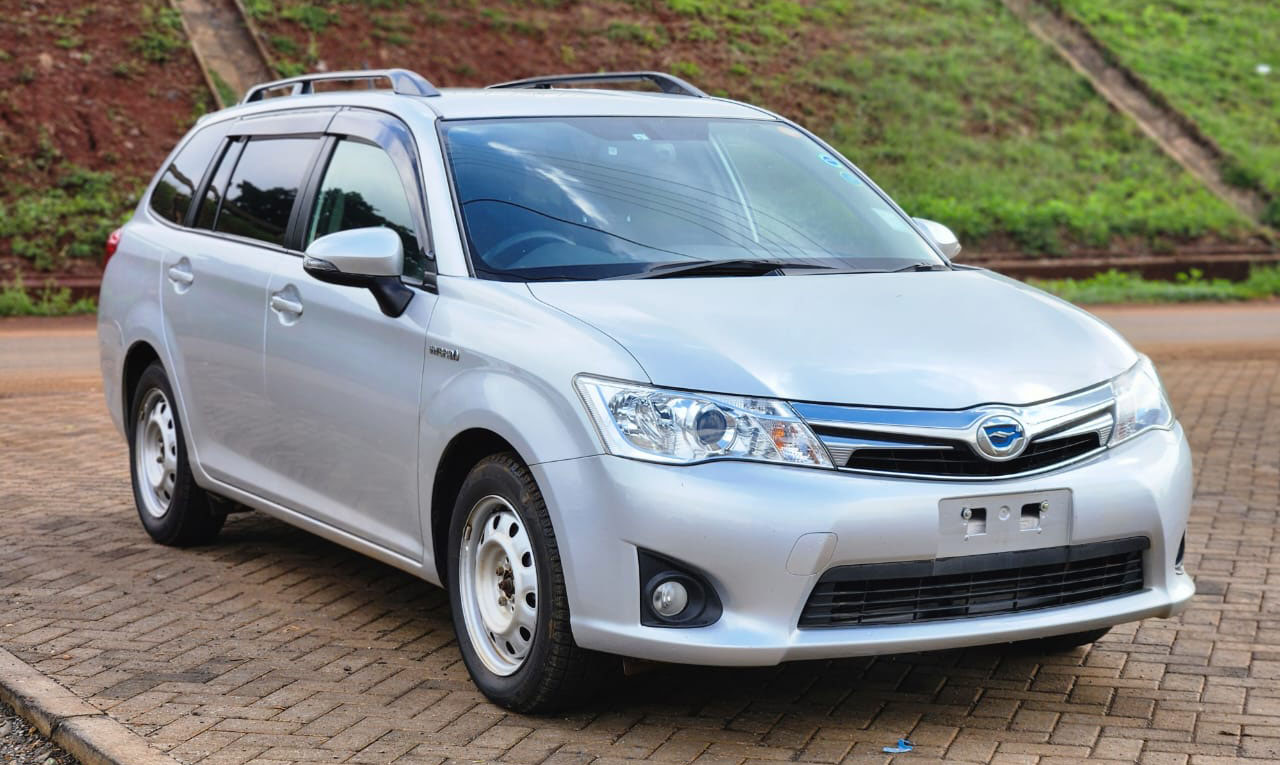
How Much Is A Toyota Fielder In Kenya? A Comprehensive Price Guide For 2025
So you’re looking for a practical, fuel efficient and budget friendly car in Kenya and the Toyota Fielder is on your mind. But one question remains: how much does a Toyota Fielder cost in Kenya? Whether you’re buying a brand new or a clean used import, this guide has got you covered on everything you need to know about Toyota Fielder prices in Kenya 2025.
What Is A Toyota Fielder?
Before we get into prices, let’s quickly go over what the Toyota Fielder is all about.
The Toyota Fielder—also known as the Toyota Corolla Fielder—is the station wagon version of the Toyota Corolla. It’s the reliability of the Corolla with more space and versatility, perfect for both families and business use. It comes in various trims including hybrid options and is available in 2WD and 4WD.
Toyota Fielder Price Range in Kenya (2025)
The price of a Toyota Fielder in Kenya depends on several factors such as year of manufacture, trim level, condition (new or used), engine type, mileage and whether it’s locally used or imported.
Here’s a breakdown:
| Year | Condition | Estimated Price (KES) |
|---|---|---|
| 2023–2024 | Brand New (Import) | 2.7M – 3.5M |
| 2017–2022 | Foreign Used | 1.5M – 2.6M |
| 2010–2016 | Foreign Used | 850K – 1.4M |
| 2005–2009 | Locally Used | 550K – 850K |
Note: Prices may vary depending on the dealer, import taxes, condition and location.
Factors That Affect the Price
1. Year of Manufacture
Newer models are more expensive due to modern features, better fuel efficiency and updated tech. The 2020–2024 models especially hybrids are more expensive.
2. Condition (New vs. Used)
Brand new imports from Japan or Dubai are the most expensive. A well maintained used unit—either locally or foreign used—is value for money without breaking the bank.
3. Trim and Engine Options
The Fielder comes in different trims such as X, G and S plus hybrid options. Higher trims and hybrids are more expensive but may give better fuel economy in the long run.
4. **MileageLower mileage cars are more expensive as they have less wear and tear.
5. Import Duties and Taxes
The total cost of importing a Toyota Fielder to Kenya includes freight charges, import duty, excise duty, VAT and registration fees. These add up to the base price.
Is the Toyota Fielder Worth It?
Yes. If you’re looking for a car that balances affordability, practicality, fuel economy and longevity the Toyota Fielder checks all the boxes. Whether you’re a first time car owner, a young professional or someone running a small business it’s a smart choice for Kenyan roads.
Should You Buy Locally or Import?
Both options have their pros and cons:
- Importing gives you a wider selection and possibly better condition vehicles. You also get to choose the specs you want. However, it comes with a waiting period (4–8 weeks) and some paperwork.
- Buying locally is faster and allows for test driving and physical inspection. However, prices can be slightly inflated, especially for clean foreign-used cars already in the country.
Toyota Fielder Maintenance & Running Costs
One reason the Fielder is so popular in Kenya is its low running costs. Here’s why:
- Fuel efficiency: Hybrid models can give up to 27 km/l, while standard petrol engines range between 14–17 km/l.
- Spare parts: Readily available across Kenya at affordable rates.
- Resale value: The Fielder holds value well in the Kenyan market due to its reliability.
Pro Tips When Buying a Toyota Fielder in Kenya
- Do a thorough inspection – especially if buying locally.
- Check the chassis number to confirm the year of manufacture.
- Ask for import documents or logbook before payment.
- Compare dealers and importers for the best prices and warranties.
- Beware of mileage tampering – always verify the vehicle history if possible.
Conclusion
So how much is a Toyota Fielder in Kenya? The answer depends on your needs and budget. With prices ranging from KES 550,000 to over KES 3.5 million there’s a Fielder for everyone.
Just do your homework, compare options and choose a reliable seller. And remember — sometimes spending a little more upfront can save you a lot in the long run.